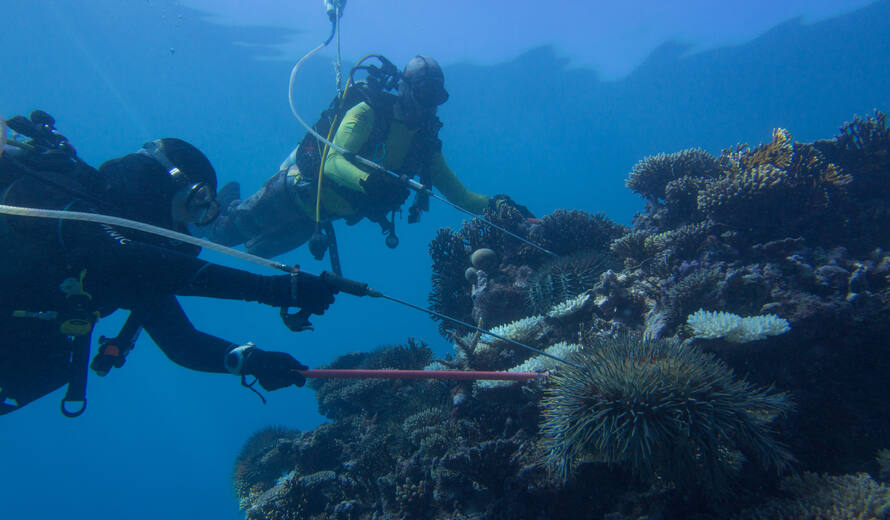
From drone wildlife tracking in Russia’s Wrangel Island Reserve System to the use of artificial intelligence at Australia’s Great Barrier Reef, UNESCO marine World Heritage sites are spearheading scientific innovation in ways that are rapidly transforming the future of ocean conservation.
While UNESCO’s marine World Heritage sites are best known for their outstanding ecosystems, unparalleled beauty and iconic biodiversity, it is their capacity to turn science & innovation into policy and decision making that is at the heart of their conservation leadership.
From March to April, polar bear cubs at Natural System of Wrangel Island Reserve (Russian Federation) leave their maternity den to take their first plunge in the icy sea and learn to hunt for seals. For local rangers it represents the height of the wildlife monitoring season when annual trends in the world’s densest polar bear population are registered. Polar dens are extremely difficult to locate in the snow covered Arctic island but thermal cameras attached to drones are now able to undertake the work with more precision than ever before – using less fuel and providing safer ranger’working conditions in the process.
Unmanned aerial vehicles are also used to monitor the vast swaths of ocean at the World Heritage Listed Belize Barrier Reef Reserve System, the second largest coral reef system in the world. The vehicles capture high resolution photography and 3D digital surface models that help scientists understand the changing conditions of this fragile coral reef.
At Australia’s Great Barrier Reef, artificial Intelligence, image recognition technology and deep learning are accelerating scientists’ understanding about the location of invasive species which in turn helps to ramp up control programs such as those for the devastating crown-of-thorn starfish.
Today, the UNESCO World Heritage List includes 50 iconic marine places located across 37 countries. As flagship marine protected areas they are uniquely positioned to spearhead change and serve as beacons of hope in a changing ocean. The United Nations Decade of Ocean Science for Sustainable Development that will run from 2021 to 2030 is a unique opportunity for the world to step up investments in ocean science and mobilize the latest science and innovation for the safeguarding of our common marine World Heritage of humankind for future generations.
